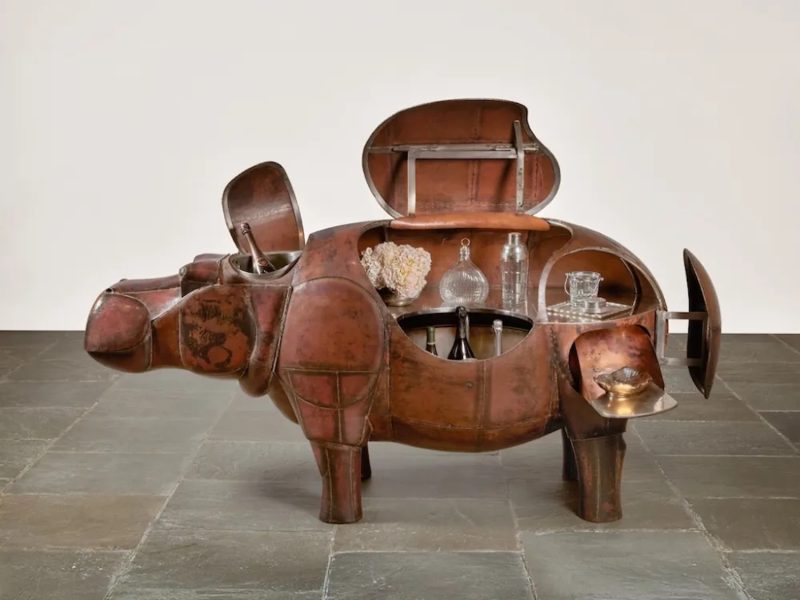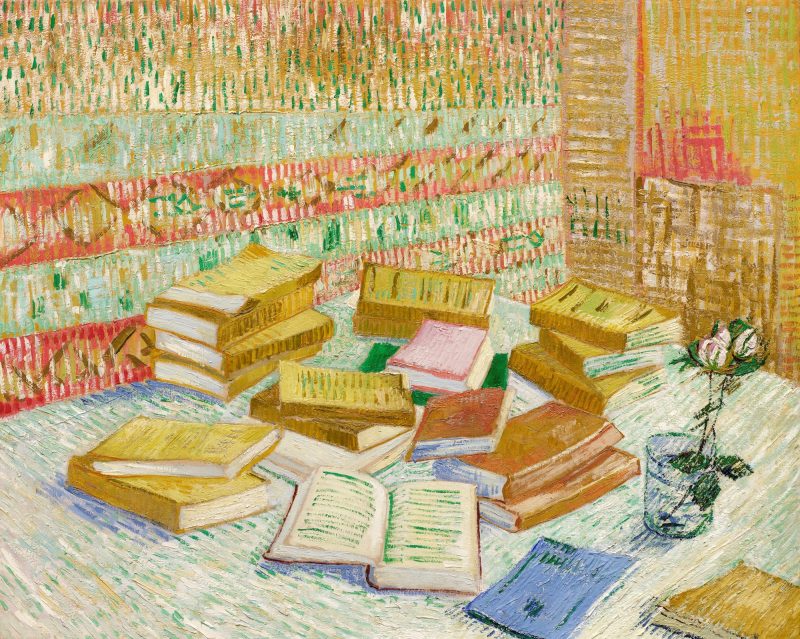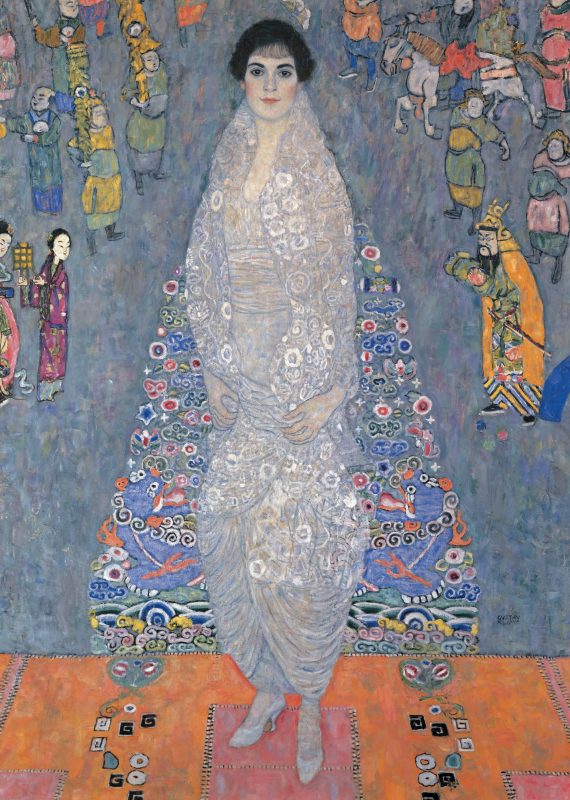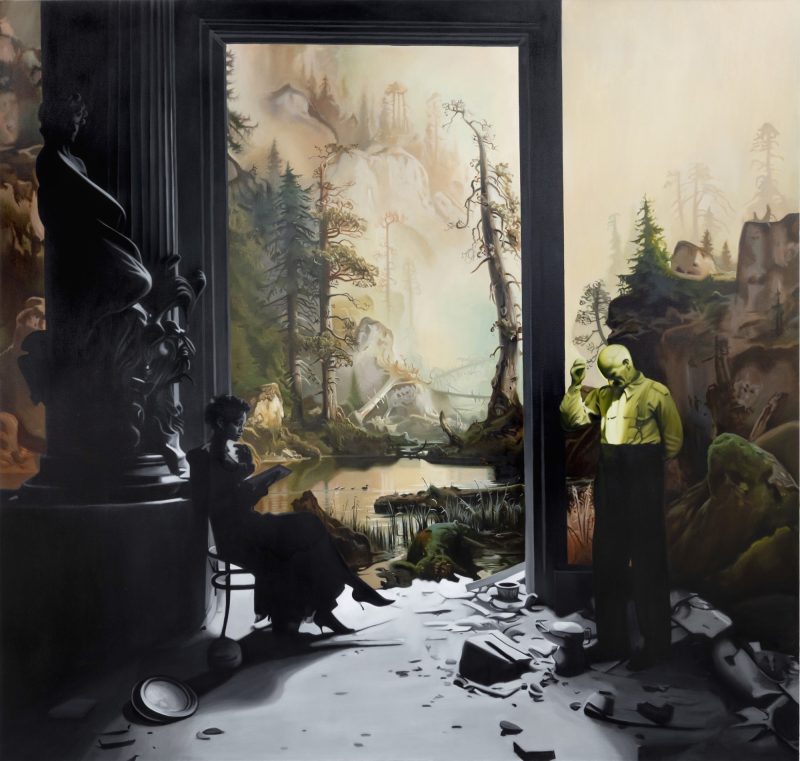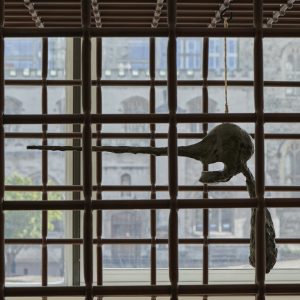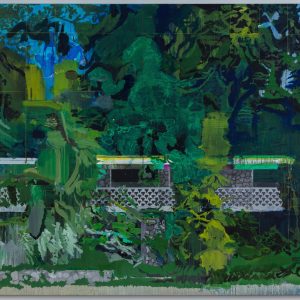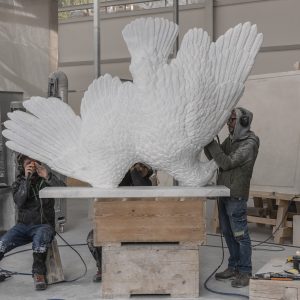This May, Sotheby’s will offer Francis Bacon’s 1966 Portrait of George Dyer Crouching – the first from a critical cycle of 10 monumental portraits of Dyer created between 1966 and 1968 with an estimate of between $30-50 million
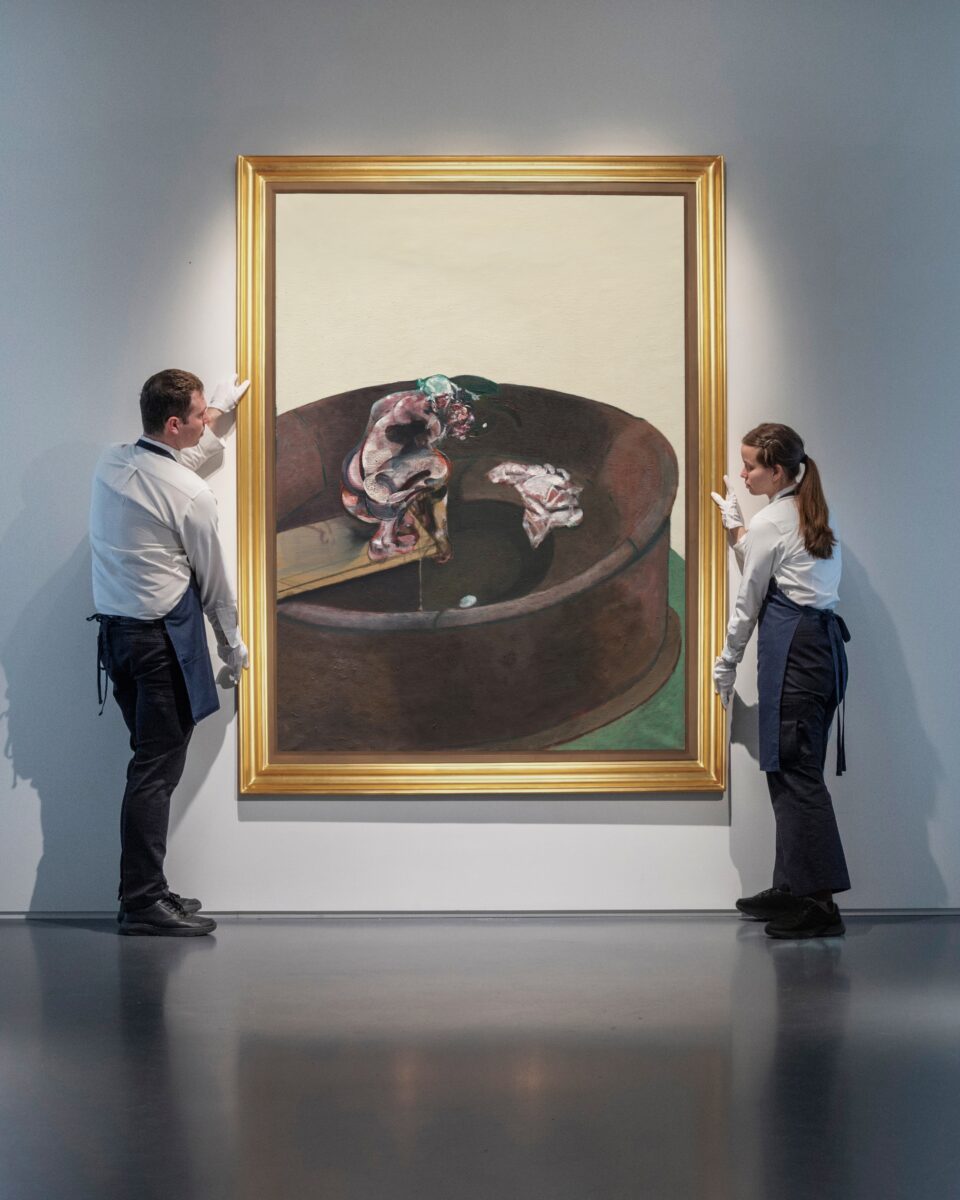
The first-ever monumental single portrait by Francis Bacon of his most famous subject George Dyer, this painting is one of the artist’s most raw and intimate windows into their rollercoaster love affair. At times passionate, intense, and sorrowful, their relationship inspired many of Bacon’s most revered works, and continues to be a source of legend. This highly personal and profound portrait speaks to the fraught and tempestuous nature of their relationship, with symbolism throughout that points to their frustrations and deep love for one another. It is an undeniable masterwork that captures a transformative moment for Bacon and for 20th century art.
Grégoire Billault, Sotheby’s Chairman for Contemporary Art
Passionate yet tumultuous, Francis Bacon’s romance with his muse and lover George Dyer was a profound influence throughout the artist’s life and work, with his portraits of Dyer standing among the most powerful of his works. Together with Bacon’s later series of masterworks titled The Black Triptychs, these paintings form one of the most powerful reflections on the cycles of life and death by any artist of his muse.
The work was acquired directly from Marlborough Gallery in 1970 and has never been offered on the market since having remained in the same family collection for more than 50 years. Making its auction debut this May, the painting will star as a highlight of the Sotheby’s Contemporary Evening Auction in New York, where it is estimated to achieve $30-50 million.
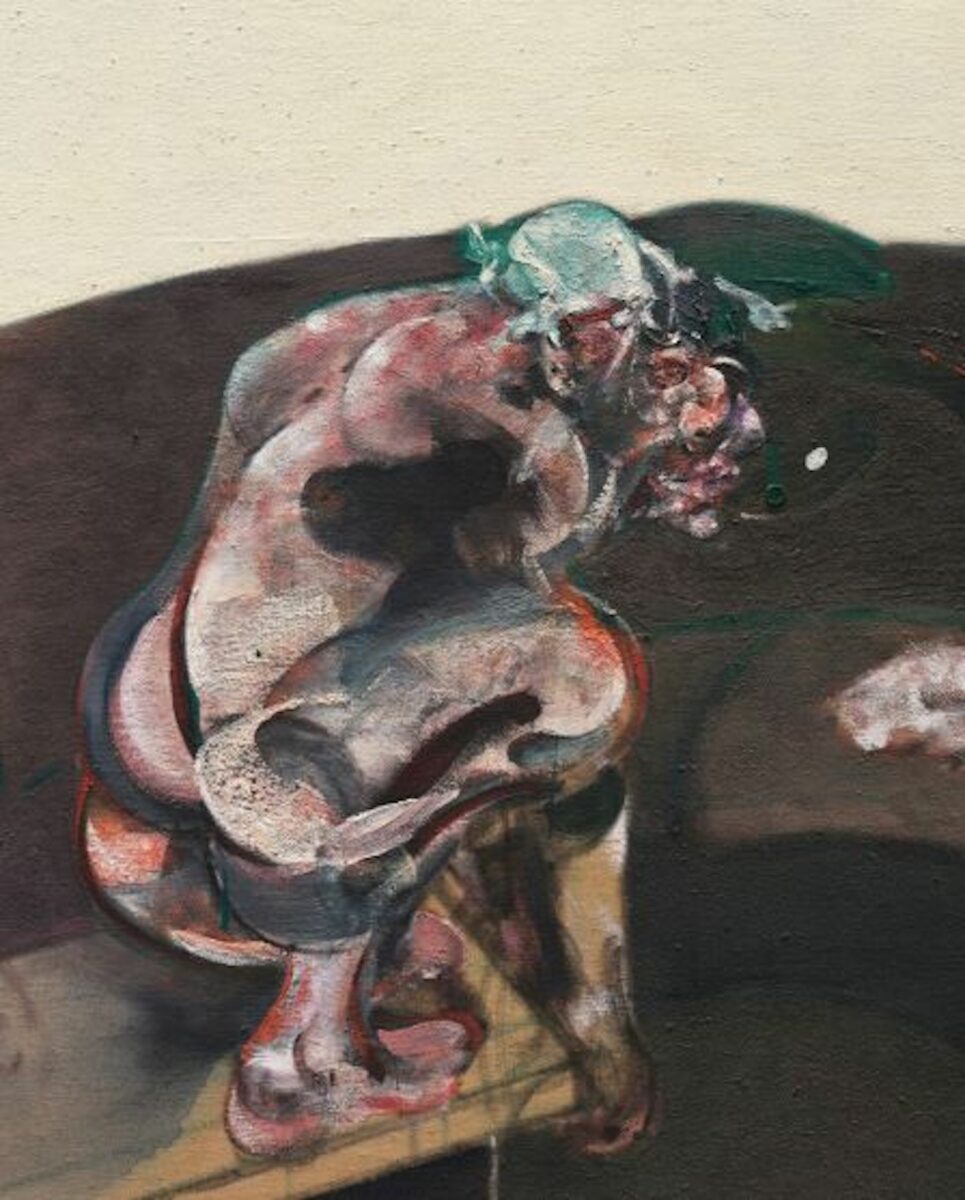
A striking masterwork from the apex of the artist’s practice, Portrait of George Dyer Crouching provides a haunting glimpse of George Dyer through the eyes of his lover, simultaneously as a hero and as a figure of vulnerability. Dyer is portrayed shirtless, crouched over his discarded shirt like a predator over his prey, his head depicted in triplicate as it turns towards the viewer, combining Dyer’s face with Bacon’s, nodding to their indivisibility. This image of the entwined head is among the best examples within Bacon’s oeuvre – a significant motif that would persist throughout his work. The revolutionary impact that Dyer and Bacon had on each other’s lives can be felt palpably here, as the first painting in a series that would, over years, chronicle the seduction and sadness, frustration and fulfillment, tension and collapse that underlined one of the most tempestuous relationships in art history.
Portraits of Dyer are the subject of some of Bacon’s most powerful works, with the record for any single-panel portrait by Bacon, as well as the top three prices for small-scale triptychs all featuring Dyer as their subject. Portrait of George Dyer Crouching represents the first full-scale portrait of Dyer to appear at auction since another from this same cycle, George Dyer Talking, sold in 2014 for $70 million – establishing the record for any single-panel portrait by Bacon.
Standing more than six feet tall, the portrait is one of a limited number of paintings from this cycle of monumental portraits in private hands. Just nine of the ten works remain after one was destroyed in a 1979 fire, with a third of those residing in esteemed institutional collections around the world, including Fondation Beyeler, Riehen, Switzerland, Thyssen-Bornemisza National Museum, Madrid, and Sara Hildénin Foundation, Tampere, Finland.
Francis Bacon first encountered George Dyer in Soho, London in the autumn of 1963. While legend has it that the pair met after Dyer broke into his Reece Mews studio, Bacon recalled their chance meeting at a bar, with Dyer remarking: ‘You all seem to be having a good time. Can I buy you a drink?’[1]A handsome desperado with a criminal past, Dyer appealed to Bacon’s masochistic sense of danger. However, over the years, Dyer revealed himself to be a compassionate, often insecure soul beneath his rogue façade.
By the middle of 1964, Dyer was firmly established as Bacon’s lover and muse. Despite this, towards the end of the 1960s, the already unsteady relationship between the pair became destructively tarnished by Dyer’s waning sense of purpose in the shadow of Bacon’s overwhelming success. Over time, Bacon grew progressively unsympathetic to his partner’s volatile bouts of purposelessness, alcoholism, and erratic behavior, and even by 1966 and the date of this work, Bacon reflects a frustration – even a fear – of Dyer’s underlying violence.
Described by Martin Harrison in his catalogue raisonné of the artist’s work, “the origins of this painting can be traced back to a note written in Bacon’s diary on 4 January of the same year, which said, ‘George crouching looking at shirt”[2]. Cast in a shadow, Dyer is seen tormented by the existential turmoil that would eventually lead to his own demise. Having thrown off his crumpled shirt into the hollow under chambers above which he crouches at the edge of a plank, Dyer’s shirt represents a critical cipher for his muse’s own self-reflection – an instance of the “double-image” motif which had preoccupied the artist since the early 1950s. Lending the image a further disconcerting and ominous air, Michael Peppiatt notes that his ‘own, tentative reading is that the image refers to Dyer’s stay in a sanatorium (possibly when he underwent apomorphine cures for addiction’[3].
This painting is a gut punch – a vortex of flesh and emotion that lures you in with this almost gravitational pull. Dyer is simultaneously predator and prey, isolated in the picture frame with a single blood red eye trained on the viewer, both fearsome and desperately alone. The head alone has an intensity and presence that beggars belief – chops of pigment and scumbled paint delineating a face that stands as one of Bacon’s most arresting and compelling creations.
Lucius Elliott, Head of Sotheby’s Contemporary Marquee Sales in New York
Throughout Bacon’s oeuvre, Dyer ultimately became his most famous sitter and the subject of many of his most revered paintings. He painted Dyer obsessively – creating over forty paintings, with as many painted following his death as during his lifetime – unlocking a new dimension of portraiture and a critical evolution for Bacon. Portrait of George Dyer Crouching echoes the legacies of Michelangelo, photographer Eadweard Muybridge and others of Bacon’s historical influences. Similarly surreal is the circular construction below Dyer, replete with art historical references, from the tubs found in Degas’s paintings of bathing women to the photographs of operating theaters illustrated in medical books by which Bacon was fascinated.
In this work, Bacon’s face is fused with Dyer’s – the head mutating in real-time, seemingly searching the surroundings relentlessly – looking downwards, sideways, all around at once, with the eye directly confronting the viewer. Dyer’s body remains suspended in a state of sudden consciousness despite seeming to surrender human control in favor of primal impulse. Strokes of venom green lacerate the bruise maroon and purple that construct Dyer’s form, transforming the body of Bacon’s lover into an incomprehensible tangle of movement. Anatomy gives way to anarchy in Bacon’s depiction, who works through the cycles of love, lust, and disdain that had defined his all-consuming relationship. In Portrait of George Dyer Crouching, Bacon turns Dyer’s flesh inside out so viscerally that they can only be borne out of the artist’s intimate knowledge of his subject.
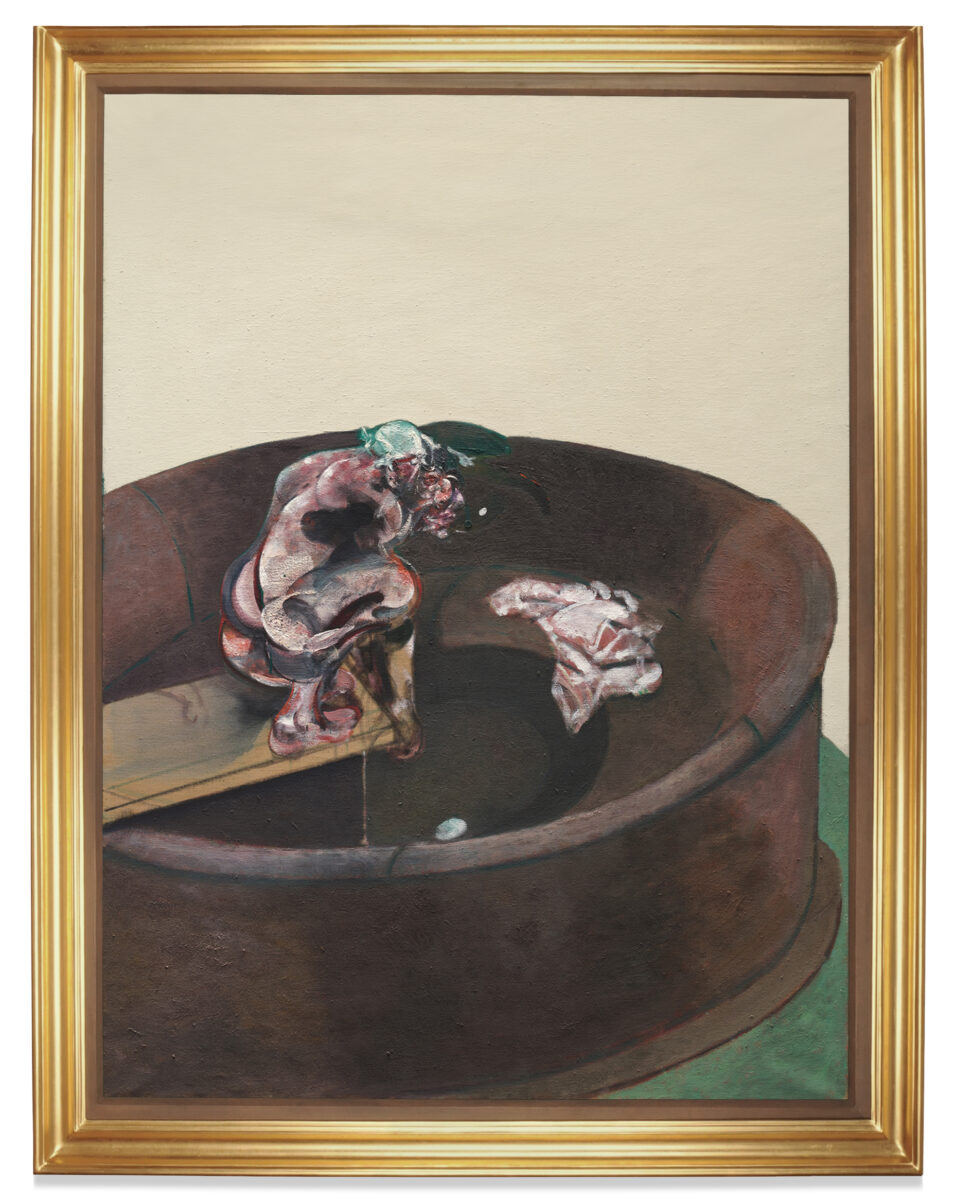
Francis Bacon was a lifelong surveyor of human vulnerability, and nowhere is this undertaking seen more vividly than in such paintings as Portrait of George Dyer Crouching. With this early masterpiece, Bacon bears witness to his fixation with corporeal mutilation, his deep knowledge of art historical tradition, and above all, his love for Dyer – in all of its traumatic and beautiful chaos.
